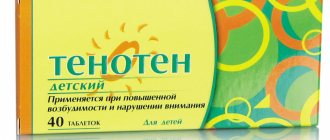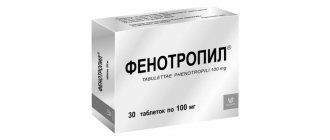Zalain
Zalain (sertaconazole nitrate) is an antimycotic agent for topical use. Has a wide therapeutic range. Active against candida, pityrospora, trichophytons, mycospores, staphylococci and streptococci. Represents a new generation of antifungal drugs. It surpasses other imidazoles in the breadth of its spectrum of action. It has high activity against forms and strains resistant to traditional drugs. Well tolerated. Awarded the Galeno Prize for the most outstanding pharmacological development. According to the European Pharmacopoeia, it is the best Spanish medicine. It is not absorbed into the systemic circulation and does not cause photosensitivity.
Mycoses of the skin and mucous membranes are one of the most pressing problems of modern medicine. The reason for this is a number of factors: unfavorable environmental conditions, dietary errors, changes in the rhythm of life, a total decrease in immunity. All this makes infection easier. The situation is aggravated by the uncontrolled use of antifungal drugs as part of self-medication, as a result of which fungi develop resistance to antifungal drugs. Recently, new antifungal drugs have become most popular, which, in addition to their fungicidal effect, are active against the accompanying microflora. One of these drugs is Zalain. Along with being fungicidal (fungistatic), it has an antimicrobial effect and interferes with the life cycle of Candida albicans.
Sertaconazole, the active component of the drug, is a benzothiaphene derivative. The latter, in turn, is similar in structure to the amino acid tryptophan, which facilitates its passage through the plasma membrane of mycotic pathogens. Damage to the cell wall in the form of funnels and channels contributes to the release of cell contents into the intercellular space - cytoplasm, electrolytes, etc., as a result of which the cell dies. The fungistatic component of Zalain's action is due to its ability to disrupt the synthesis of the main structural components of the fungal membrane. The proximity of the minimum fungicidal and minimum inhibitory concentrations is one of the advantages of the drug. Zalain remains in the skin in an effective concentration for two days after application. The high lipophilicity of sertaconazole molecules facilitates the penetration of the active component into the deepest layers of the skin. The frequency of use of the drug is twice a day. The duration of the drug course is determined by the type of pathogen and the location of the infection. As a rule, the duration of treatment does not exceed four weeks. In the absence of systemic action of Zalain, its only side effect is local reactions that do not require discontinuation of treatment. Contraindication to use is hypersensitivity to the active substance of the drug.
Is it possible to get pregnant with thrush (vaginal candidiasis)
Vaginal candidiasis or thrush. What questions does a woman have with this diagnosis? What should be taken into account during the treatment of thrush, and what medications are available to treat and prevent this disease?
Vaginal candidiasis or thrush. What questions does a woman have with this diagnosis? What should be taken into account during the treatment of thrush, and what medications are available to treat and prevent this disease?
First, let's figure out what vaginal candidiasis is. It should be noted that vaginal candidiasis (thrush) is not a sexually transmitted disease and is considered together with them due to a similar clinical picture. The cause of this disease is a bacterium of the genus Candida. These microorganisms are present on the skin and mucous membranes (in the mouth and intestines) of most healthy people, but the disease is caused not simply by the presence of Candida fungi, but by their reproduction in large numbers.
In order to get vaginal candidiasis, it is not at all necessary to communicate closely with a man. This problem does not at all indicate promiscuity or non-compliance with the rules of intimate hygiene. Fungi can enter a woman's genital tract from the intestines and through contaminated objects. In addition, the disease appears when a person’s body’s defenses are reduced. For example, this happens with long-term use of antibiotics or poor nutrition. The disease also often develops against the background of impaired metabolism. Thrush affects people with chronic diseases - diabetes, tuberculosis, inflammation of the appendages, diseases of the digestive system, dysbacteriosis.
Factors contributing to the development of candidiasis (thrush):
taking antibiotics, douching, wearing tight underwear (especially synthetic). (Remember that underwear should not cause you discomfort, so give preference to natural fabrics).pregnancy. (Don’t worry, thrush “out of the blue” appears in many expectant mothers. It does not threaten the well-being of your baby, but the disease still requires treatment. However, in the first trimester of pregnancy, almost all fast-acting modern medications are not allowed to be used. You can use vaginal baths with solutions of antiseptics and herbs, as well as suppositories with nystatin. You should refrain from using other drugs for now. In the second and third trimesters of pregnancy, you can already use suppositories and cream "Pimafucin" and local products with clotrimazole - "Candide", which is produced in in the form of 1% cream and 1% solution. Good results are obtained by complex treatment, which involves the use of both vaginal tablets (for example, Candide-B6) and a cream that is applied externally to the groin area. Diabetes mellitus, HIV infection.
How does genital candidiasis (thrush) manifest?
Symptoms of candidiasis in men:
itching, soreness and redness of the glans penis, swelling of the glans penis and foreskin, white curdled coating on the glans penis, pain during intercourse
Symptoms of candidiasis in women:
itching, soreness and redness in the vaginal area and external genitalia; white, curd-like discharge from the vagina; pain during intercourse; pain during urination
Is genital candidiasis (thrush) dangerous?
Candidiasis of the genital organs does not cause any particular harm to health. However, it causes a lot of anxiety to the patient and interferes with normal sexual life. In addition, candidiasis (thrush) can be a sign of serious general diseases (for example, diabetes and HIV infection).
What treatment is indicated for genital candidiasis (thrush)?
There are many medications available to treat genital candidiasis (thrush). Some of them are used topically (ointment, vaginal tablets or suppositories), others are used orally (tablets or capsules for oral administration).
For mild cases of genital candidiasis (thrush), local treatment is usually sufficient. Drugs for topical treatment of this disease include (international names listed first, followed by commercial names in parentheses):
clotrimazole (Antifungol, Yenamazole 100, Candibene, Kanesten, Kanison, Clotrimazole) is the most common drug for local treatment of genital candidiasis (thrush) isoconazole (Gynotragen Ovulum) miconazole (Ginezol 7, Ginodaktarin, Klion-D 100) natamycin (Pimafucin) nystatin (Polygynax, Terzhinan).
It is worth noting that nystatin (both for topical use and for oral administration) is an outdated drug. In some cases, it is ineffective, since fungi of the genus Candida can be resistant to it.
For mild cases of candidiasis, it is enough to take just one such capsule orally at a dosage of 150 mg. But if candidiasis appears every month, for prevention you need to take one capsule monthly. Be careful with these medications if you have severe liver or kidney disease. For recurrent thrush, along with suppositories, it is necessary to use one of the general-action drugs, one tablet per day with meals. The course of treatment usually consists of five days.
Keep in mind that women over 50 years of age, people with liver disease, adrenal dysfunction, and allergic reactions to the medications Nizoral and Oronazole should be taken with extreme caution.
What is possible prevention of genital candidiasis (thrush)?
Prevention of genital candidiasis (thrush) comes down to the prescription of antifungal drugs for local or systemic use during treatment with antibiotics and when exposed to other factors that reduce general and local immunity.
Treatment of thrush in adolescence
Girls who are not sexually active should take sitz baths with a solution of furatsilin or weak infusions of medicinal herbs - sage, calendula, chamomile. If such remedies do not help, you can try Polygynax vaginal capsules, but only those that are adapted for girls and teenage girls. Be sure to check this when buying medicine at the pharmacy.
ON A NOTE
If you have genital candidiasis (thrush), then having sex will most likely be impossible due to pain. If the pain is minor, then you can have sex, but with a condom.
When taking a course of antifungal therapy, do not forget to treat your man at the same time. He will also need tablets (for example, MIKOmax once) and external medications in the form of creams, for example, mifungar cream. If only you are treated, then at any moment you risk getting candidiasis again from your husband.
Yaroslava PRUDNIKOVA Take the first step - make an appointment!
or call 8 800 550-05-33
free phone in Russia
Treatment of thrush
There are two groups of drugs in the treatment of thrush:
- topical preparations (suppositories, ointments and creams)
- systemic drugs (tablets, capsules)
Drugs for local treatment are most preferable, because do not have a systemic effect, have fewer side effects, and are most effective because act directly at the site of the disease. Also, when treating thrush, they often encounter a number of difficulties and problems. The main problems in the treatment of thrush are:
- development of resistance of fungi of the genus Candida
- restoration of normal vaginal microflora
- frequent relapses (including due to insufficient concentration of lactobacilli)
It is important to follow the specialist’s recommendations, observing the prescribed dosages and application regimen.
Since the prevalence of the disease has increased in recent years, it is important to receive complete therapy and avoid relapses of thrush. When treating thrush, experts recommend an integrated approach to therapy. Complex treatment should be aimed at solving two problems: eliminating the cause of thrush (fungi of the genus Candida) and restoring the vaginal microflora.
Ecofucin® in the treatment of thrush
Natamycin
- has a fungicidal
effect - causes
the death
of fungal cells - resistance to it does not develop
- does not inhibit
the growth of natural microflora - practically not absorbed
into the blood and has no systemic effect
+
Prebiotic3
- actively fermented by normal vaginal microflora, stimulating the growth
of lactobacilli4 - causes restoration of vaginal microflora, stimulates local immunity
4
The active ingredient5 of Ecofucin® eliminates the cause of thrush, and the prebiotic3 in Ecofucin® helps restore vaginal microflora and strengthen local immunity4
The effectiveness and safety of the drug Ecofucin has been proven by clinical studies
Ecofucin®
, which contains natamycin and lactulose, promotes faster clinical and microbiological recovery in patients with thrush (including pregnant women and women during breastfeeding) than a drug that contains only natamycin.
Read more about the use of Ecofucin in pregnant women
More information about the use of Ecofucin in non-pregnant women
Clinical cure occurred significantly earlier in the group of patients who used the drug Ecofucin.
Kuzmin V.N., Bogdanova M.N. Ecofucin® is the first drug for the eradication of Candida fungi with the effect of stimulating the growth of lactobacilli in pregnant women. RMJ. 2020; 1; 28-33
Ecofucin®
promotes the growth of its own beneficial lactobacilli in the vagina by almost 100 times, thereby reducing the number of relapses of thrush.
Read more about the use of Ecofucin in pregnant women
More information about the use of Ecofucin in non-pregnant women
There was a more significant effect of the drug Ecofucin® on increasing the level of its own Lactobacillus spp.
Kuzmin V.N., Bogdanova M.N. Ecofucin® is the first drug for the eradication of Candida fungi with the effect of stimulating the growth of lactobacilli in pregnant women. RMJ. 2020; 1; 28-33
Factors contributing to the occurrence of thrush:
Thrush is not a sexually transmitted infection
- weakened immune system
- disrupted vaginal microflora (for example, as a result of antibiotic therapy)
- concomitant urogenital infections and gynecological diseases
- endocrine diseases (diabetes mellitus, obesity, thyroid pathology, etc.)
- pregnancy (high levels of estrogen have a beneficial effect on the growth of Candida fungi, and the mechanism of immunosuppression in pregnant women also plays an additional role)
- long-term use of antibiotics, glucocorticosteroids, immunosuppressants
- use of high estrogen contraceptives
- external factors (failure to comply with personal hygiene rules, tight underwear made of synthetic fabrics)



![Table 1. Bioavailability (absorption) of various organic forms of calcium within 2 hours after oral administration in the experiment [22]](https://laram-halal.ru/wp-content/uploads/tablica-1-biousvoyaemost-absorbciya-razlichnyh-organicheskih-form-kalciya-v-techenie-330x140.jpg)

